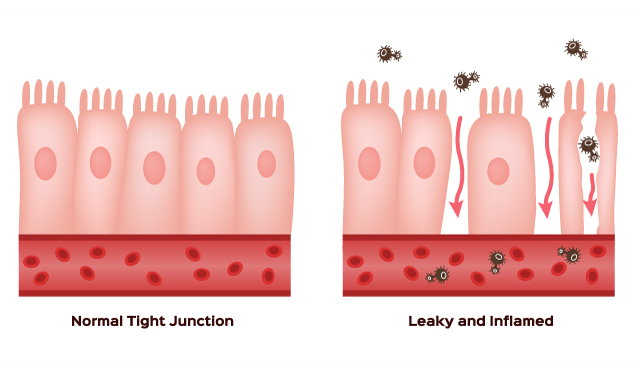 Parler
Parler Gab
Gab
- Leaky gut, or intestinal permeability, refers to a compromised intestinal lining that may allow bacteria and toxins to pass into the bloodstream, potentially causing symptoms like gas, bloating, fatigue, indigestion, nausea and diarrhea — though this concept remains largely theoretical.
- Medical experts stress that leaky gut is not an officially recognized diagnosis due to a lack of standardized testing and limited scientific evidence. The term is popular but oversimplifies a complex and not-yet-validated condition.
- Many symptoms attributed to leaky gut overlap with other legitimate conditions such as IBS, celiac disease, Crohn’s disease, small intestinal bacterial overgrowth (SIBO) or even fibromyalgia and autoimmune disorders, which require specific diagnoses and treatments.
- If digestive symptoms persist for more than a couple of weeks, experts advise seeking medical evaluation. While “leaky gut” may not be a formal diagnosis, persistent symptoms could signal a real and treatable gastrointestinal issue.
Leaky gut syndrome: Exploring the theory behind intestinal permeability
Under normal conditions, the intestinal lining forms a tight barrier that selectively allows nutrients to pass into the bloodstream while keeping out potentially harmful substances. However, in cases of suspected leaky gut, this barrier is believed to be compromised due to inflammation, potentially triggering a variety of symptoms. These may include a burning sensation in the gut, chronic diarrhea, fatigue, gas and bloating caused by bacterial overgrowth, painful indigestion, nausea and vomiting. According to Dr. Pratima Dibba, a gastroenterologist in New York City, leaky gut remains a theoretical concept. There is currently no standard method to directly measure intestinal permeability, making it difficult to validate or diagnose. Still, the term "leaky gut" has gained popularity for its simplicity and accessibility, offering patients a way to understand potential dysfunctions in the intestinal barrier. Even though the concept is not fully embraced in the medical community, many experts acknowledge that the symptoms commonly attributed to leaky gut are real and could be signs of more clearly defined gastrointestinal conditions. Dr. Caroline Soyka of Baptist Health in Florida notes that patients with persistent digestive symptoms are often diagnosed with conditions such as irritable bowel syndrome (IBS), functional dyspepsia, small intestinal bacterial overgrowth (SIBO), celiac disease, Crohn’s disease, fibromyalgia or, more rarely, autoimmune or neurological disorders. Dr. Soyka and other specialists emphasize that more research is needed to determine the extent to which intestinal permeability contributes to broader health issues. Without clear diagnostic criteria or sufficient clinical trials, leaky gut syndrome remains a hypothesis rather than an accepted condition in conventional medicine. Despite the uncertainty, individuals experiencing persistent or worsening digestive symptoms should not ignore them. Dr. Dibba advises that occasional bloating or indigestion is common, but if such symptoms last more than a couple of weeks or become disruptive, it’s important to consult a healthcare provider. Severe symptoms like vomiting or ongoing diarrhea warrant even more urgent medical attention. Importantly, experiencing symptoms consistent with leaky gut doesn’t mean they are imagined or psychosomatic. Instead, these symptoms might indicate an underlying condition that requires specific testing and targeted treatment. Because many gastrointestinal disorders share overlapping symptoms, identifying the correct diagnosis is key to managing and improving overall digestive health. In summary, while "leaky gut" is not officially recognized as a medical diagnosis, the concept underscores the growing awareness of the gut’s role in overall health. Until further research provides clarity, patients experiencing chronic digestive distress should seek professional evaluation to rule out or treat established medical conditions. Tune your internet dial to NaturalMedicine.news for more tips on how to use natural remedies for preventative medicine and for healing, instead of succumbing to Big Pharma products that cause, spread, and exacerbate disease and disorder. Sources for this article include: NaturalNews.com EverydayHealth.comClimbing CO₂ levels fuel agricultural triumph—and spark a climate debate
By Willow Tohi // Share
Study: Childhood OBESITY crisis reaches alarming heights
By Ava Grace // Share
Governments continue to obscure COVID-19 vaccine data amid rising concerns over excess deaths
By patricklewis // Share
Tech giant Microsoft backs EXTINCTION with its support of carbon capture programs
By ramontomeydw // Share
Germany to resume arms exports to Israel despite repeated ceasefire violations
By isabelle // Share










